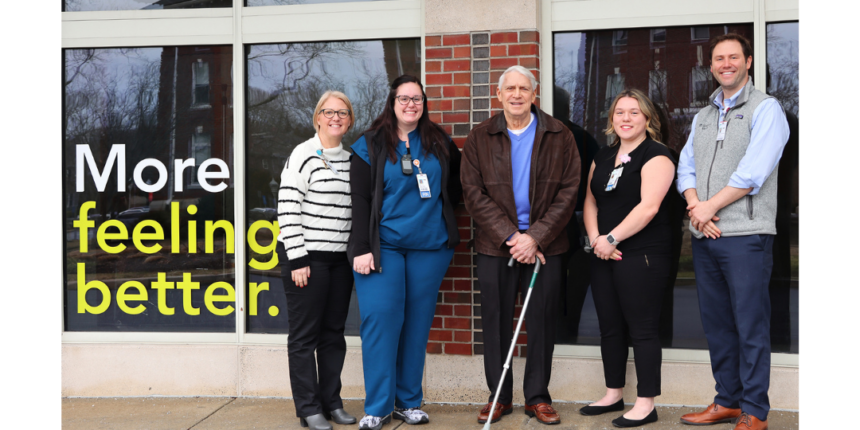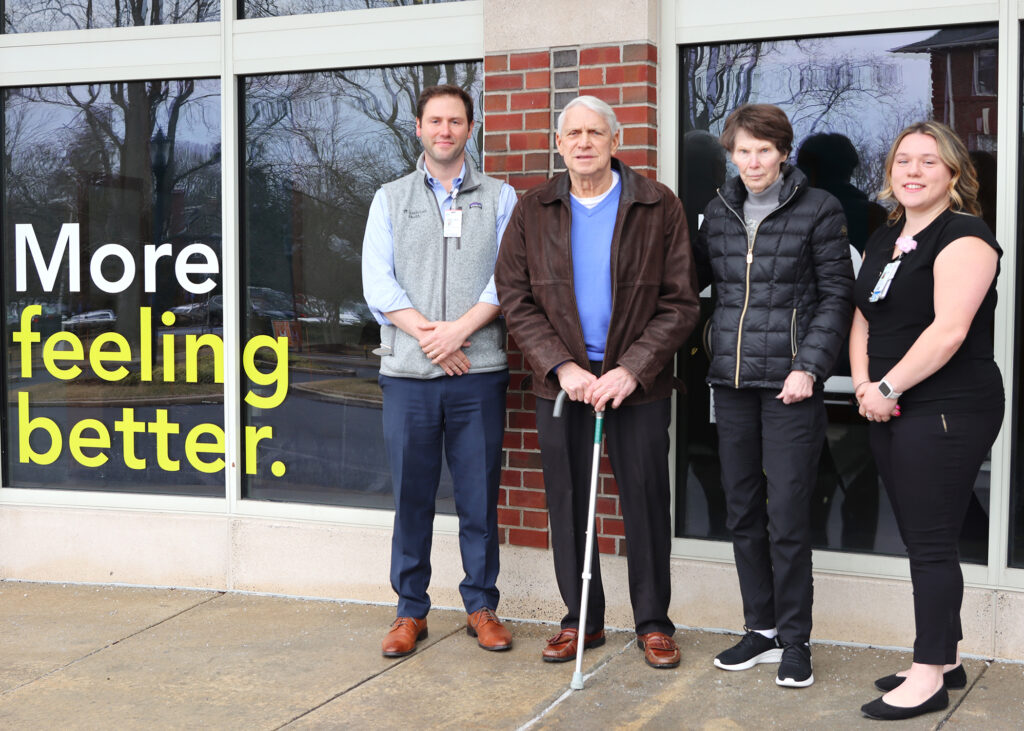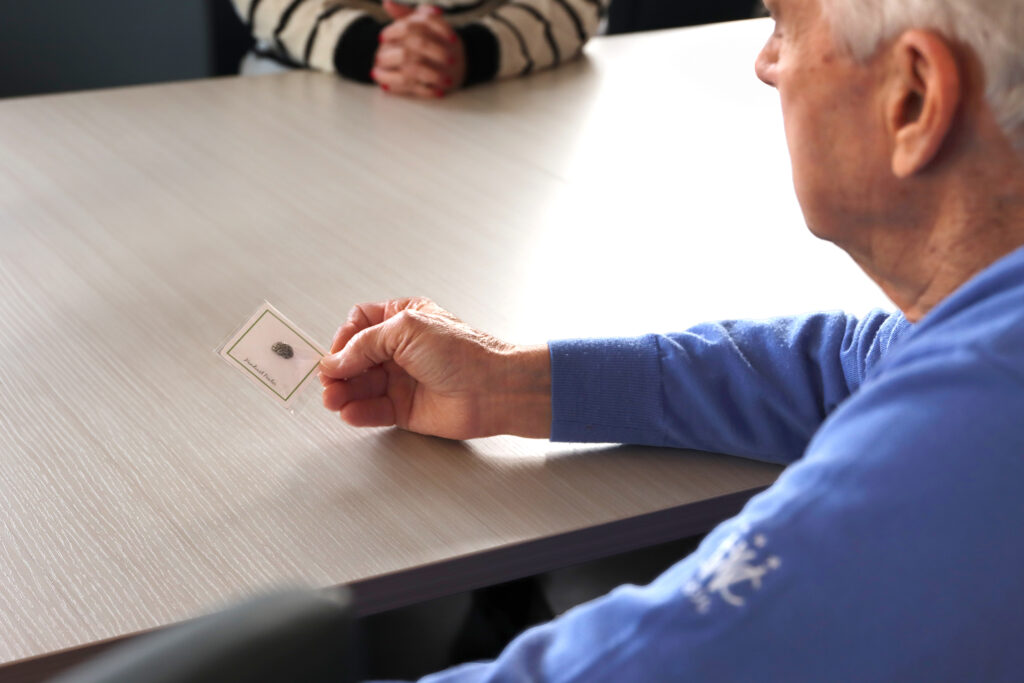Patient Profiles
Exceptional Care Kept Robert Muse on his Feet After a Major Stroke

Last November, Robert Muse was rushed to the St. Luke’s Hospital Emergency Department when his wife, Susan, called 911 after she had heard him fall upstairs.
When he arrived at the hospital, the emergency team quickly assessed that he was experiencing severe weakness on the left side of his body and immediately performed a CT scan that confirmed their clinical suspicion that he was suffering a major stroke. One of the main blood vessels inside the brain had a large clot that was blocking blood flow.
“I wasn’t sure I was even having a stroke,” recalls Robert. “I was just on my iPad playing Sudoku and next thing I knew it started to get away from me. As I was reaching for it, I ended up on the floor and I couldn’t get up. My wife heard me fall and quickly called a good friend and 911 for help.”
Timing is the key factor in stroke care and recovery
Thanks to the quick response from Mattapoisett EMS, and the efficient teamwork by Dr. Matthew Bivens, Kendra Bento, RN, radiology technologists, radiologists, and health unit coordinators, the St. Luke’s team was able to administer medication to help treat the stroke just 25 minutes after arrival.
This medication breaks up clots that are blocking arteries to restore blood flow but does not always work for occlusions of large blood vessels. Through coordination with Rhode Island Hospital Neurointerventional Radiology and Brewster EMS, Robert was expediently transported to their comprehensive stroke center where he underwent a surgical procedure to remove the clot.
“Everything in this case went exactly as designed for our stroke system of care. All the wheels were spinning as fast as they could and that was reflected in the care we were able to provide and the great outcome for Robert,” said Dr. Daniel Sacchetti, Stroke Director for Southcoast Health. “One of the key factors to successful stroke treatment is time, and the faster we can stop a stroke from progressing, the better a person is able to recover.”
Due to the seamless communication between the hospitals and EMS teams, Robert showed rapid neurologic improvement after the stroke and was able to leave the hospital just a few days later. He was then referred to an inpatient rehabilitation facility in Boston to help with his recovery.
Stroke Recovery

A stroke is a serious medical condition that requires emergency care. According to the CDC, every 40 seconds someone in the United States has a stroke, totaling more than 795,000 people in the United States every year. Strokes are also the leading cause of serious long-term disability in the country.
This year, all three Southcoast Hospitals received national recognition for the exceptional stroke care they provide to our community.
Coming back to Southcoast Health, Robert’s care team was thrilled to see him. Although he suffered another stroke after his initial experience in November, he has made remarkable progress and is almost fully recovered.
The care team who met Robert in November presented him with a brain pin, something that Southcoast Health presents to providers and staff on the medical teams that are involved in exceptional stroke care.

Kendra Bento, RN, received her brain pin for her role in Robert’s care.
To learn more about Stroke Care at Southcoast Health, please visit Stroke Care Services MA | SouthcoastHealth.
